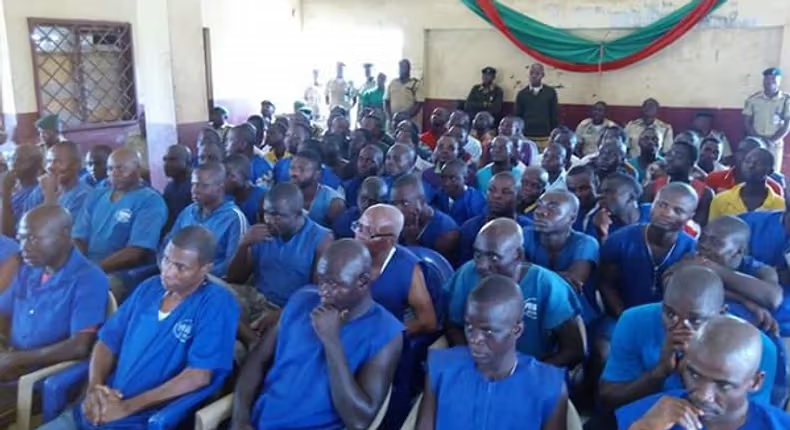Gumel expressed concerns over the vulnerability of detainees without legal representation and the potential impact on their rights within the criminal justice system.
The Commissioner of Police in Kano State, Usaini Gumel, has confirmed that 400 detainees were languishing in the Central Correctional Centre, Kurmawa in Kano.
The News Agency of Nigeria (NAN) reports that Gumel confirmed this during the Law Week of the Nigerian Bar Association (NBA), Kano State branch, with the theme “Turning Point” on Monday in Kano.
Gumel said most of the detainees had no case files, untraced court case records, absence of Case Diary, non-issuance of legal advice as well as prolonged criminal trials without bail.
He also highlighted the shortage of legal professionals and support staff to provide pro bono legal services to the large number of arrested and/or detained individuals and members of the Force.
“There is generally lack of effective coordination among key stakeholders, especially correctional facilities and legal aid services, leading to gaps in service delivery and support,” he said.
The commissioner expressed concerns over the vulnerability of detainees without legal representation and the potential impact on their rights within the criminal justice system.
“There is lack of basic facilities such as healthcare, routine hygiene, staff offices, and schools at the Remand Home, Goron Dutse, Kano.
“Due to this, the State Command launched a Steering Committee to facilitate the implementation of the innovative provisions contained in the Police Duty Solicitors Scheme Document.
“The committee, comprises of criminal justice professionals, has visited correctional facilities and held constructive discussions with stakeholders to obtain useful information on the way forward,” he added.
The police command in the state, he said, is committed to the promotion and protection of human rights through the launch of the Police Duty Solicitor Scheme (PDSS), which aims to provide free legal assistance to detainees and ensure that their rights are upheld and protected throughout the criminal justice processes.
